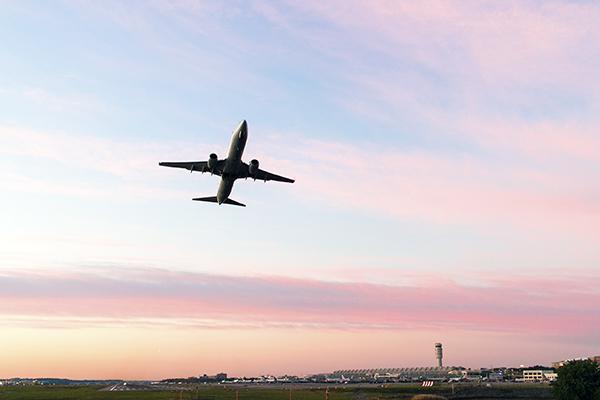Updated: Oct. 19, 2015 at 9:56 a.m.
Foggy Bottom residents want nighttime noise rules in D.C. to start applying to airplanes.
Neighbors in Foggy Bottom have teamed up with residents from other nearby neighborhoods to fight against changing flight paths in and out of Ronald Reagan Washington National Airport. Known as Citizens for a Rational National, the group includes nine neighborhood organizations in Northwest D.C. who object to increasing airplane noise over residential areas.
Flight routes began changing two years ago, and now that planes are flying over more neighborhoods instead of being restricted to the Potomac River, residents say it has become too noisy.
The neighbors in the group have been in communication with the Federal Aviation Administration about the changing plans for the past two years, residents said. The FAA announced the plans that were tested were final in January, prompting the group to submit a petition to the U.S. Court of Appeals for D.C. to review the plan in August.
The petition filed on Aug. 24 claimed that the FAA violated the National Environmental Policy Act and failed to address the concerns raised by residents affected by the new flight paths. Georgetown University and its student association were in the group that filed the report, along with other neighborhood organizations.
“The University [Georgetown], its resident students, and the neighborhoods and their residents have suffered – and will continue to suffer – significant, adverse impacts as a result of the FAA’s flight arrival and departure routes,” the petition document reads.
Ed Solomon, a commissioner for the Advisory Neighborhood Commission that includes Georgetown, said he is still looking for greater support from the Northwest D.C. community, particularly with GW and the GW Student Association.
Marina Streznewski, the president of the Foggy Bottom Association, said the noise problems vary throughout the area and that at least a dozen people in Foggy Bottom have complained to her about the increasing noise in the Historic District.
“The people who live further north like Georgetown have a much bigger issue, and it’s getting worse,” Streznewski said. “There are groups of neighbors who have been getting together and the coalition is becoming more formalized.”
Lily Nigaglioni, who lives on I Street, said she has noticed a substantial increase in the noise from the planes, and is now woken up at 6 a.m. by the noise.
Christopher Paolino, a spokesman for the Metropolitan Washington Airports Authority, said in an email that the authority looks forward to work with D.C. residents to alleviate the noise issues.
“We continue to work with the community, the FAA and the airlines – as we have over the last 24 months – to identify potential solutions that minimize the impact of noise on as many people as possible without compromising safe operations,” he said.
Joe Luther, the president of Georgetown University’s Student Association, said in an email that the noise from the changing flight paths over the school has impacted students’ “quality of life.” He said the noise has increasingly interfered with the daily life at the school, causing tour guides over the summer to have to pause tours when a plane flew overhead.
“I have heard students say that, especially in the older buildings on campus, professors will have to pause the classes because they can’t speak over the planes,” Luther said, adding planes used to fly over Virginia instead of over campus.
This post was updated to reflect the following correction:
The Hatchet incorrectly reported the organization is called Citizens for a National Rational. It is called Citizens for a Rational National. We regret this error.







